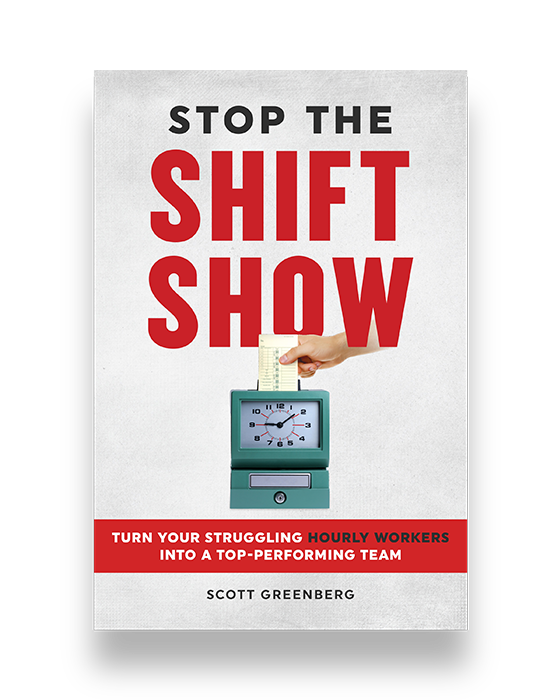The Future of Work, Employee Engagement, & Teambuilding
A New Approach for Employee Retention & Peak Performance
Imagine being in a crowded hospital emergency room packed with patients suffering from a variety of issues. An elderly man in a ski cap keeps coughing into his fingerless gloves. A teenage girl in a softball uniform holds a bag of ice on her knee. A woman sits with her husband with a hand on her stomach, grimacing in pain. Everyone waits quietly, listening for their name to be called.
Suddenly, a doctor in a long lab coat bursts through the double doors. He approaches the man with the cough, writes him a prescription for penicillin, and sends him home. He sees the teenage girl with the ice bag, writes her a prescription for penicillin, and sends her home. He moves on to the woman with stomach pain and—you guessed it—writes her a prescription for penicillin and sends her home. The ER is super busy tonight, so the doctor quickly moves from patient to patient, prescribing everyone the same treatment. Once he’s cleared the waiting room, he returns through the double doors to continue his work.
There’s a name for this kind of medicine: malpractice. The doctor sees each patient’s symptoms. But without taking the time to conduct a proper examination, he can’t possibly diagnose their problems. And without a proper diagnosis, he certainly can’t offer the right treatment.
So many managers in retail, hospitality, restaurants, manufacturing, franchises, and other fast-paced industries relying on strong teamwork are guilty of managerial malpractice. They’re so busy overseeing everything that they fail to properly diagnose the reasons for employee underperformance. They observe behaviors they don’t like but make assumptions about the reasons behind them. Consequently, they apply ineffective management that fails to address the real problem and often makes it worse.
That busyness also prevents them from acknowledging the behaviors they do like. They don’t reinforce high performance, causing skilled, motivated workers to grow bored or feel unappreciated. Their needs aren’t being met either. It’s one big reason why so many struggle with employee retention.
The future of work will require managers and professionals in human resources to approach workplace culture differently to achieve top performance in team members. Traditional methods for hiring and retention won’t work with newer generations. Leaders will have to become advocate coaches, working not only to oversee operations, but to develop their team members. More specifically, they’ll need to be better at diagnosing an employee’s needs and prescribing the best leadership to help them grow.
30-Second Leadership™ is a coaching methodology designed to prevent managerial malpractice, build better workplace cultures, and help employees work at a higher level. It involves a quick and simple process for diagnosing employee performance and then prescribing the best corresponding coaching to promote excellence. I like the word “coaching” because it suggests that both the manager (coach) and the employee want the same thing, and that the coach is on the employee’s side. Coaches are authority figures but are also seen as advocates. That’s what we want from managers: to advocate for employees and set them up for success.
I used this methodology in my own retail stores and have trained others to use it in restaurants, manufacturing, franchises, hospitality, personal services, and many other industries where teambuilding is essential. The response has been fantastic, and the training remains one of my most requested programs, especially as a follow-up breakout session after my keynotes.
The beauty of this tool is its simplicity. There are other frameworks out there for assessing employee performance and choosing management styles, but most are a bit esoteric. The world doesn’t need yet another complicated leadership model to study. I wanted to create something people would use. It needed to be something that could easily be understood and adopted by a 19-year-old assistant manager running a frozen yogurt shop. And because hourly workplaces are fast-paced, it needed to be something that wouldn’t take more than 30 seconds.
Some of the key concepts from this program include:
The Future of Work:
It will require managers to be flexible, adaptable, and employee-focused.
Workplace Culture:
Managers must work to create and maintain positive, constructive social norms among employees. Feeding them, giving them stuff, and planning fun activities is nice. But it’s not how you create high-performance cultures.
Employee Retention:
Great employees must be kept great; otherwise they risk disengaging from their work (and going elsewhere).
Employee Coaching:
Managers must constantly coach employees. It’s the most important work managers do.
Developing Hard Skills and Soft Skills:
Both are important, but each requires different kinds of development and support.
Employee Training:
Do it right the first time, and you’ll spend less time fixing mistakes and correcting bad habits.
Peak Performance Teambuilding:
Employees need clear goals to pursue. They need to know what’s expected, and how to determine how they’re doing.
Whether you’re operating a franchise or managing employees in the restaurant and hospitality industry, retail, manufacturing, or another type of organization, you’re well positioned to help your team excel. 30-Second Leadership can make your job easier, and their work a whole lot better.
What Makes Scott an Expert in Leadership, Management, & The Future of Work
- More than ten years operating two retail businesses (Edible Arrangements)
- His top-ranked (for sales) franchise business was awarded “Best Customer Service” and “Manager of the Year” out of more than 1000 locations worldwide
- Decades of experience as a leadership, management, and employee retention speaker
- Author of The Wealthy Franchisee:Game-Changing Steps to Becoming a Thriving Franchise Superstar and Stop The Shift Show: Turn Your Struggling Hourly Workers Into a Top-Performing Team
